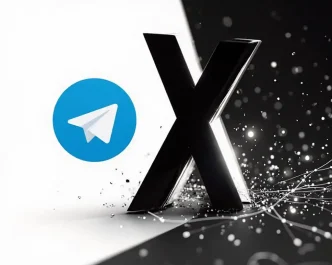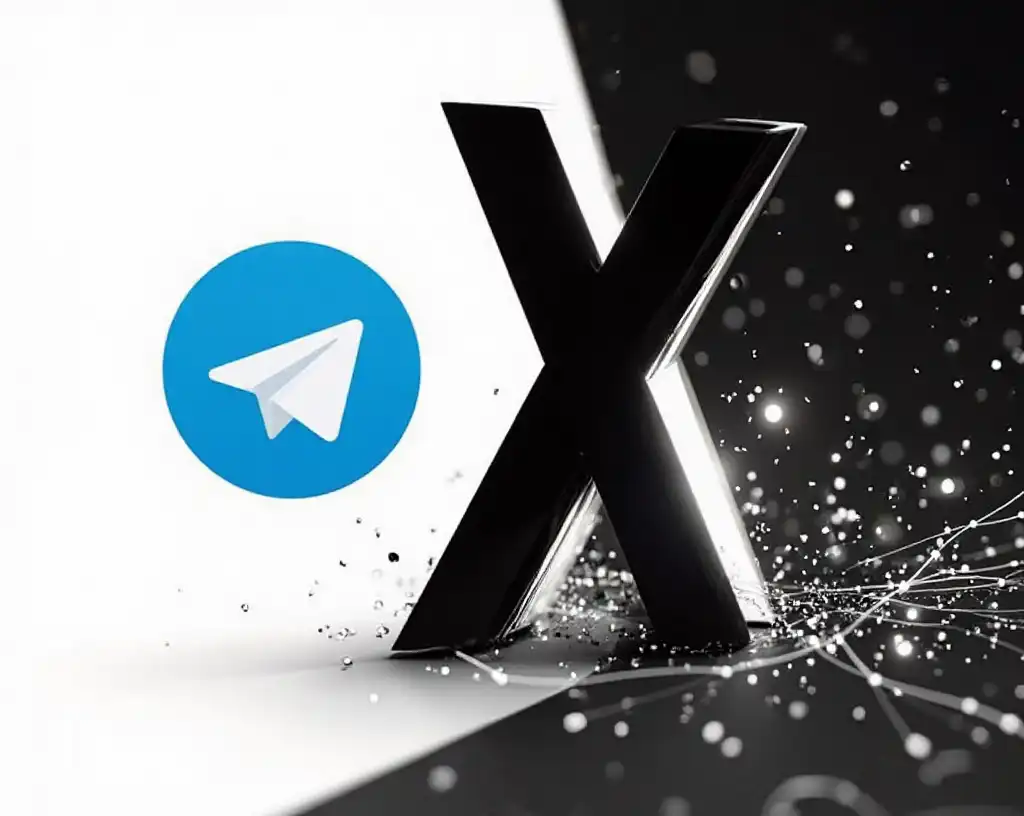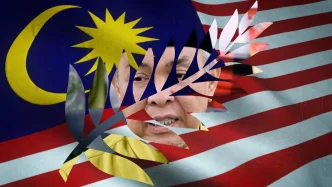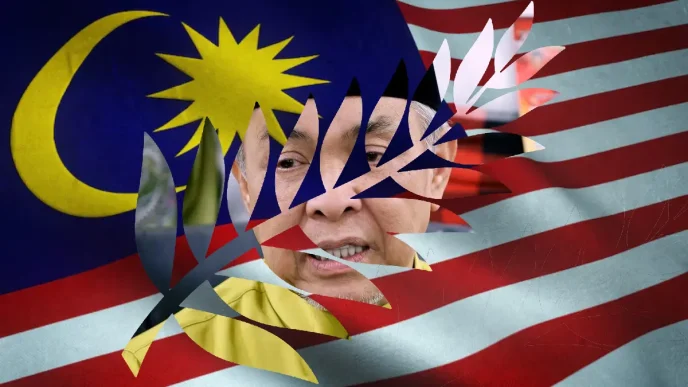In a landmark move for the tech industry, Telegram, the privacy-focused messaging giant, has announced a one-year partnership with xAI, the artificial intelligence startup founded by Elon Musk. The deal, revealed on Wednesday by Telegram co-founder Pavel Durov, will see Telegram receive $300m in cash and equity from xAI, alongside a 50% share of revenues from xAI subscriptions sold through the Telegram platform. This collaboration, which integrates xAI’s Grok chatbot into Telegram’s ecosystem, comes at a pivotal moment for both companies, as they navigate a global landscape increasingly fraught with debates over free speech, censorship, and the role of technology in resisting authoritarian control. The partnership follows Durov’s high-profile arrest in France in August 2024, an event that sparked international outcry and underscored the tensions between tech platforms and regulatory authorities.
The agreement leverages Telegram’s vast user base of 900 million monthly active users and xAI’s cutting-edge AI technology. Telegram, known for its commitment to user privacy, end-to-end encryption, and resistance to censorship, has become a vital platform for secure communication worldwide. xAI, driven by Musk’s mission to “advance our collective understanding of the universe,” offers Grok, a conversational AI designed to provide accurate, context-aware responses with a unique perspective on complex issues. By embedding Grok into Telegram, the partnership aims to bring advanced AI capabilities to millions, while providing xAI with a powerful distribution channel.
For Telegram, the $300m cash-and-equity injection and 50% revenue-sharing model represent a significant financial boost, as Durov noted: “This also strengthens Telegram’s financial position.” The deal aligns with Telegram’s efforts to diversify its offerings and remain financially sustainable, particularly after facing legal and financial pressures following Durov’s arrest. For xAI, Telegram’s global reach and group-based structure offer an ideal environment for Grok to engage users in real-time conversations, from answering queries to moderating discussions.
Benefits of the Partnership
The partnership offers mutual benefits. For Telegram, the $300m infusion and revenue-sharing model provide financial stability, crucial after the legal costs and scrutiny following Durov’s arrest. For xAI, Telegram’s user base offers a testing ground for Grok, allowing it to refine its AI through real-world interactions. Users gain seamless access to a powerful AI tool, enhancing Telegram’s appeal as a multifaceted platform.
The collaboration also strengthens Telegram’s position in the face of regulatory pressures. By aligning with xAI, Telegram gains a powerful ally in Musk, whose influence could deter further legal challenges. For xAI, the partnership amplifies Grok’s reach, potentially driving subscription revenue and advancing its mission to make AI a global resource.
The Utility of xAI and Grok
xAI’s mission to accelerate human scientific discovery sets it apart from AI developers focused on commercial applications. Grok, its flagship chatbot, is designed to provide dynamic, context-aware responses, drawing on a broad knowledge base to address queries ranging from science to philosophy. Unlike traditional chatbots, Grok offers “outside perspectives” on humanity, making it a versatile tool for users seeking nuanced insights. Its integration into Telegram allows users to access these capabilities within their messaging app, enhancing the platform’s utility.
Grok’s potential applications are vast. It can assist with real-time fact-checking in group discussions, provide educational resources, or even generate creative content for Telegram’s vibrant communities. For example, a user in a science-focused channel could ask Grok to explain quantum entanglement, receiving a clear, tailored response. This accessibility aligns with xAI’s goal of democratizing AI, particularly in regions where Telegram is a primary communication tool, such as Eastern Europe and the Middle East.
The US Election and Free Speech Implications
The partnership also unfolds against the backdrop of the 2024 US presidential election, where free speech emerged as a contentious issue. Had Kamala Harris won the presidency, some analysts argue the US might have pursued policies aligning more closely with the EU’s regulatory approach, emphasizing stricter oversight of social media to combat disinformation. Such policies could have included measures to hold platforms accountable for harmful content, potentially mirroring the pressures faced by Telegram in France. Critics of this approach, including Musk, have warned that it risks undermining the First Amendment by giving governments greater control over online discourse.
Musk’s vocal support for Donald Trump during the 2024 campaign, including hosting a live interview on X, drew scrutiny from regulators and sparked debates about the role of tech moguls in shaping political narratives. A Harris victory might have emboldened efforts to regulate platforms like X and Telegram, potentially stifling their ability to operate as open forums. The election outcome, with Trump’s victory, has instead bolstered Musk’s influence, allowing him to advance his free speech agenda through initiatives like the Telegram-xAI partnership. This collaboration could serve as a counterweight to regulatory trends in the EU and elsewhere, reinforcing platforms that prioritize user autonomy over government compliance.
Durov’s Arrest and the Free Speech Battle
The partnership comes in the wake of a tumultuous period for Telegram, marked by Durov’s arrest in France on August 24, 2024, at Paris’s Le Bourget airport. French authorities detained Durov as part of an investigation into alleged criminal activity on Telegram, including child pornography, drug trafficking, and money laundering. The detention, which lasted several days, sparked widespread controversy, with critics arguing it was an attempt to pressure Telegram into complying with stricter content moderation policies. Durov, a self-described free speech advocate, was placed under judicial supervision and initially banned from leaving France, though he was later granted permission to relocate to Dubai in March 2025 under court approval.
Elon Musk, a vocal supporter of Durov, condemned the arrest, calling it a “red line” crossed by French authorities and framing it as an attack on free speech. Musk, who has positioned himself as a defender of open discourse through his ownership of X and leadership of xAI, argued that Durov’s detention was less about criminal allegations and more about geopolitical pressures to censor Telegram’s content. Posts on X from May 2025 echoed this sentiment, with Durov himself claiming that French authorities focused on geopolitical issues rather than the stated concerns about child pornography during his interrogations.
The arrest highlighted Telegram’s role as a platform resistant to government oversight, a stance that has made it both a haven for free expression and a target for regulators. Durov’s release and subsequent move to Dubai were celebrated by free speech advocates, with some on X crediting “resistance” for prevailing. However, the incident underscored the challenges tech platforms face in balancing user privacy with regulatory demands, particularly in the EU, where stricter laws on digital content have sparked tensions with tech leaders like Musk.
Musk’s Challenge to the EU and UK
Elon Musk has emerged as a central figure in the global fight for free speech, using his platforms—X and xAI—to challenge what he perceives as overreach by governments and regulatory bodies. In the EU, Musk has criticized policies like the Digital Services Act, which imposes stricter rules on content moderation to combat disinformation and illegal activity. The arrest of Durov in France, a key EU member state, fueled Musk’s narrative that European regulators are stifling open discourse under the guise of public safety. Similarly, in the UK, Musk has clashed with authorities over proposed online safety laws, arguing they risk creating a framework for censorship that could be exploited by governments to silence dissent.
Musk’s advocacy extends beyond rhetoric. Through X, he has amplified voices critical of what he calls “totalitarian regimes” seeking to control society via social media. The platform has hosted debates on censorship, with users citing Durov’s arrest as evidence of governments weaponizing legal systems against tech leaders who resist moderation demands. Musk’s decision to partner with Telegram through xAI signals a strategic alignment with platforms that share his commitment to minimizing external interference in digital communication. By integrating Grok into Telegram, Musk is not only expanding xAI’s reach but also reinforcing Telegram’s role as a bastion of free speech, capable of withstanding regulatory pressures.
Expected Use Cases
The integration of Grok into Telegram opens up diverse use cases:
- Education: Students can use Grok to clarify complex topics or access resources in study groups.
- Moderation: Grok could help moderate Telegram channels, flagging misinformation while respecting the platform’s free speech ethos.
- Productivity: Professionals can leverage Grok for tasks like data analysis or brainstorming within work-related groups.
- Creativity: Grok’s conversational style, inspired by science fiction, makes it ideal for creative collaborations in Telegram’s fan communities.
- Global Access: In regions with limited AI access, Grok’s integration brings advanced technology to millions via Telegram’s low-data platform.
Challenges and Future Outlook
Integrating Grok into Telegram’s infrastructure poses technical challenges, particularly ensuring performance across diverse devices. Privacy concerns also loom, as users may question how xAI handles data within Telegram’s encrypted ecosystem. Both companies must communicate transparently to maintain trust.
The one-year partnership term raises questions about its longevity. If successful, it could lead to deeper integration, but failure to meet expectations could end the collaboration prematurely. The partnership’s success will depend on user adoption and the ability to navigate regulatory hurdles, particularly in the EU.
In a broader context, this partnership is a bold statement in the fight for free speech. By aligning with Telegram, Musk is challenging the narrative of government-controlled digital spaces, a stance that resonates with users wary of censorship. The collaboration could inspire other platforms to resist regulatory overreach, shaping the future of digital communication in an era of increasing authoritarianism.
















